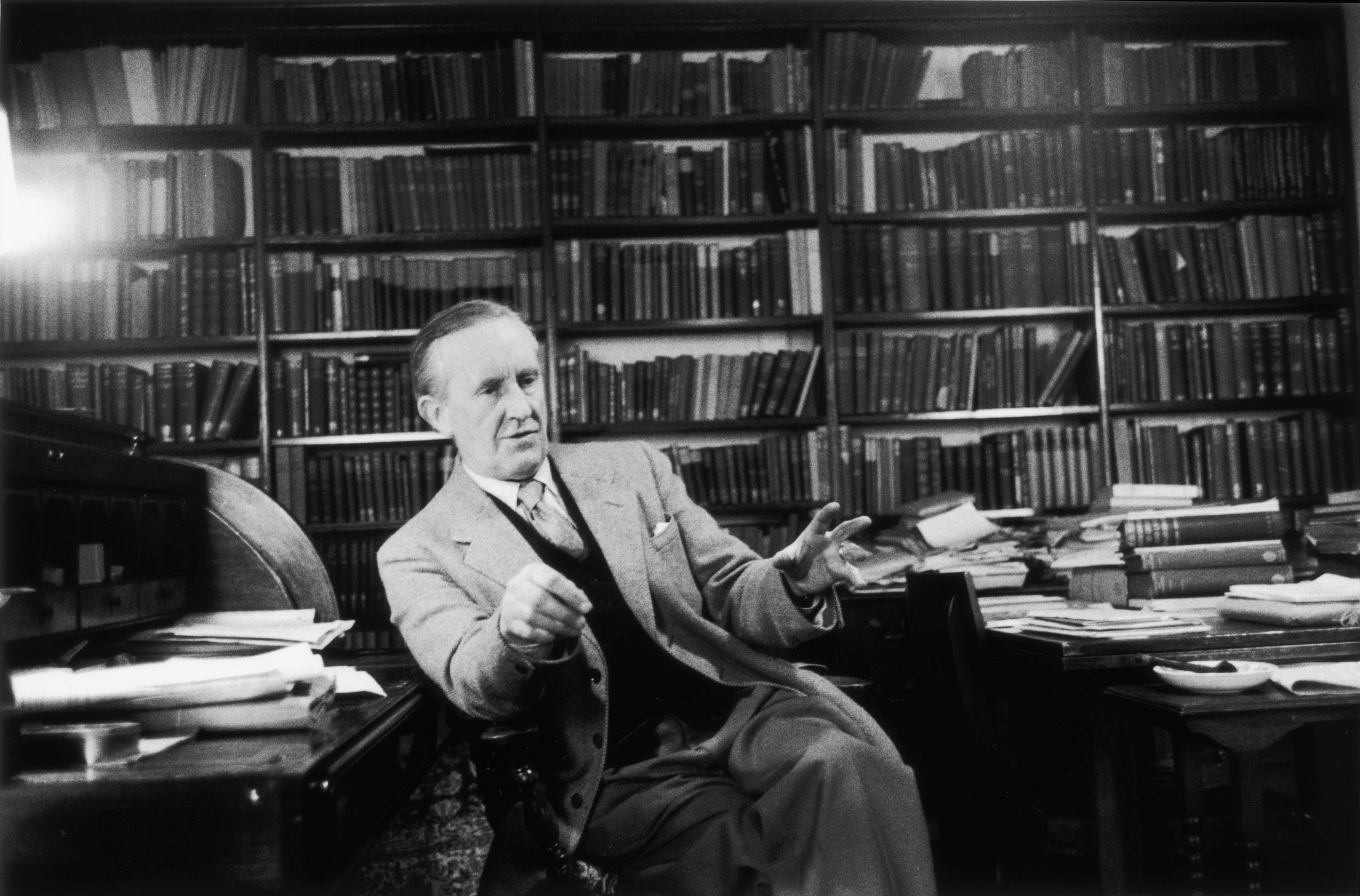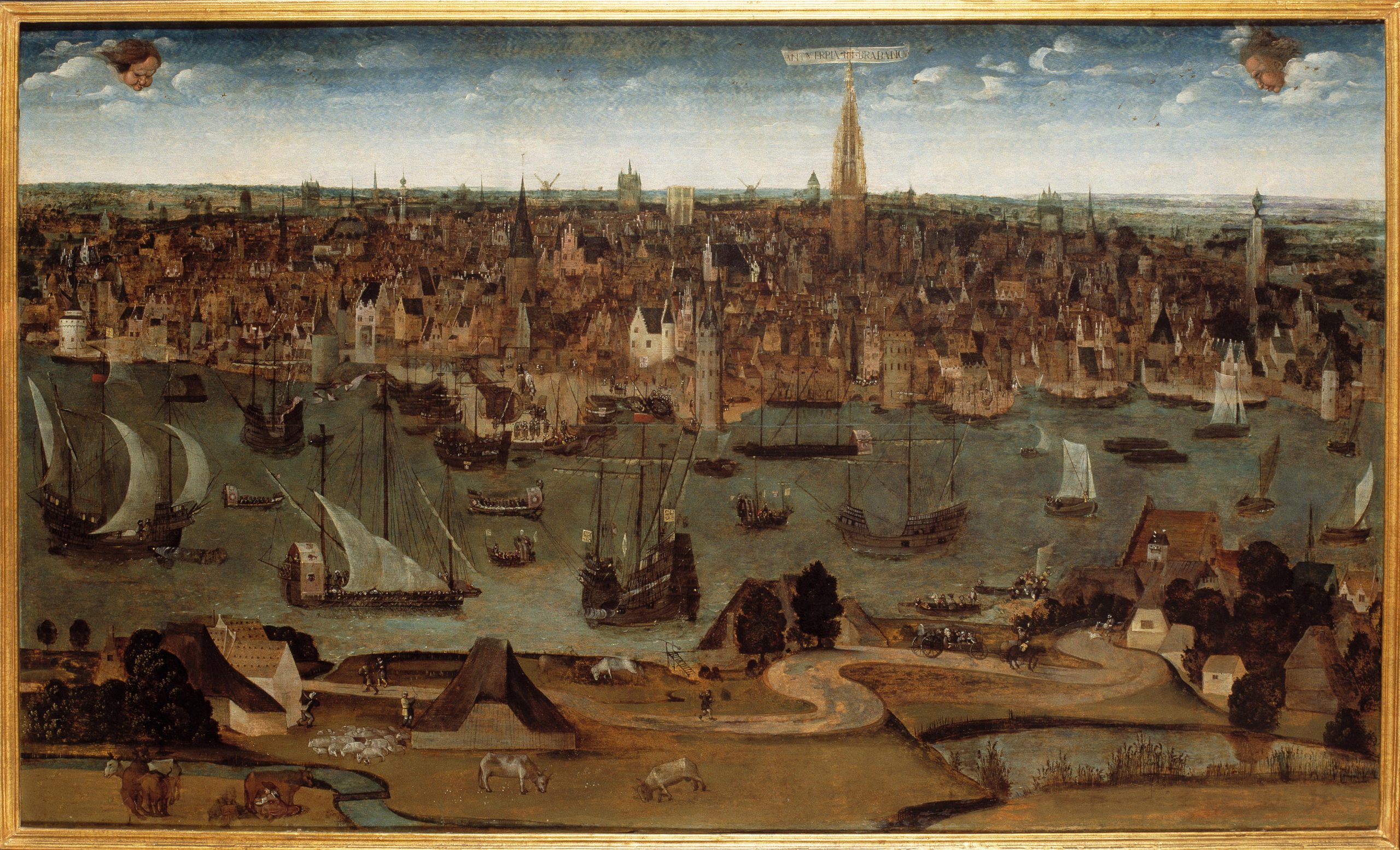J R R Tolkien is known to people who work in linguistics as a philology professor and the author of academic papers like his 1963 article “English and Welsh”. This argued that contact between the Old English language and the language of the indigenous Celts of Britain, after the Anglo-Saxon invasions, led to considerable Welsh linguistic influence on Old English.
Very many more people will know him as the author of The Hobbit and The Lord of the Rings.
John Ronald Reuel Tolkien is thought of as being a quintessential scholarly, pipe-smoking Englishman. But he was actually born in Bloemfontein, the South African city with a Dutch/Afrikaans name meaning ‘flower fountain’. His parents were very English, however, and he returned to England aged three after his father’s death.
His family name is definitely, and rather obviously, not English. Tolkien’s great-grandfather Johann Benjamin Tolkien had come to Britain in the 1770s from the predominantly German-speaking city of Danzig, now the Polish city of Gdansk. Danzig was mainly Low German-speaking at the time, but the population also included Jews, Poles, Lithuanians, Latvians, Dutch, Flemings and Scots.
The surname has been the subject of much discussion. It seems to have been a local Baltic-coast variant of German Toll-kühn. The word toll in this context is best translated as ‘mad’, and kühn meant ‘brave’, so ‘wildly audacious’ gives some idea of what the name originally meant. However, this seems to have been a German folk-etymological coinage attempting to make sense of an Old Prussian-language name that would have been incomprehensible to German speakers and had nothing to do with courage.
Old Prussian, the original indigenous language of the area, was a member of the Baltic language family. The Old Prussian people were first referred to by Tacitus. But we do not know much about their language itself.
One surviving text consists of a catechism dating from 1561 written in the Old Prussian dialect of the Sambia Peninsula (now in the Russian Kaliningrad enclave, formerly German Königsberg). It was translated from German by Abelis Vilis, the pastor of the church at Pobeten on the peninsula, now called Romanovo in Russian.
The language died out during the four centuries or so after the pagan Prussians were invaded from the west by the Christianising, plundering – German Teutonic Knights in the 1200s. This was followed by an influx of Lithuanians, Poles and, especially, Germans.
The modern Polish village that is now called Tołkiny, which lies about 100 miles east of Gdansk, is a candidate for the original home of the Tolkien family. Under the name of Tolkynen, it was part of German East Prussia until 1945, when the Germans were expelled and replaced by Poles, who had themselves been expelled from those areas further to the east which were taken over by the Soviet Union.
After the post-war redrawing of national boundaries, Tołkiny is now located in the northeast of Poland, just to the south of the border between Poland and Kaliningrad, and not far from the frontiers with Belarus and Lithuania.
Even as a child, Tolkien had an interest in inventing his own new languages and some fragments appear in his fiction. Given his family’s linguistic background taking in Old Prussian, Polish, Low German, German, and Afrikaans; his scholarly interests in Old English, Middle English and Welsh as well as modern English; and his studies of Gothic and Finnish, this is perhaps not a complete surprise.




